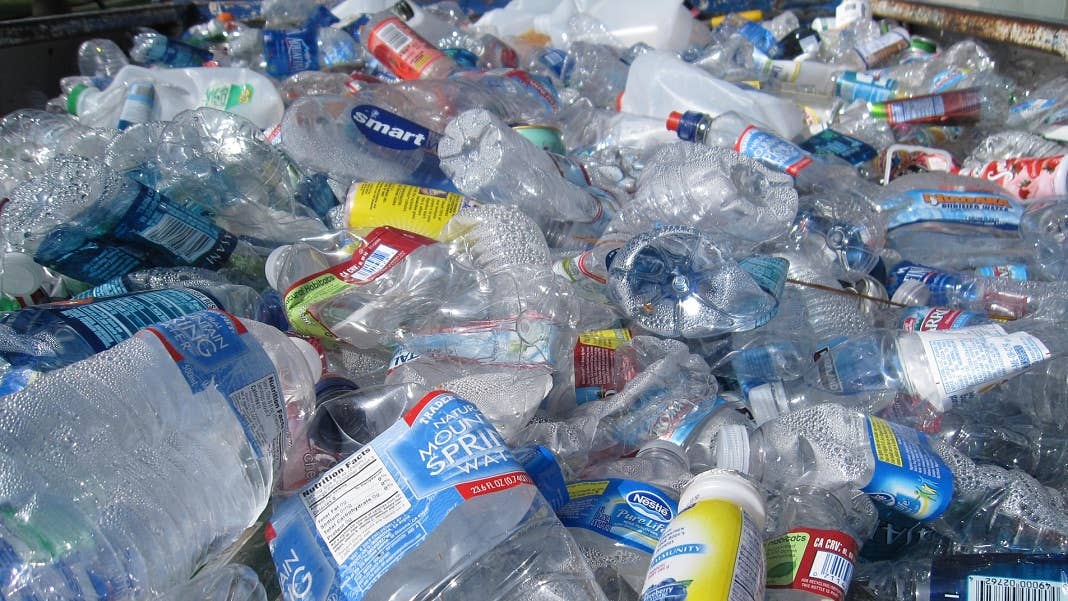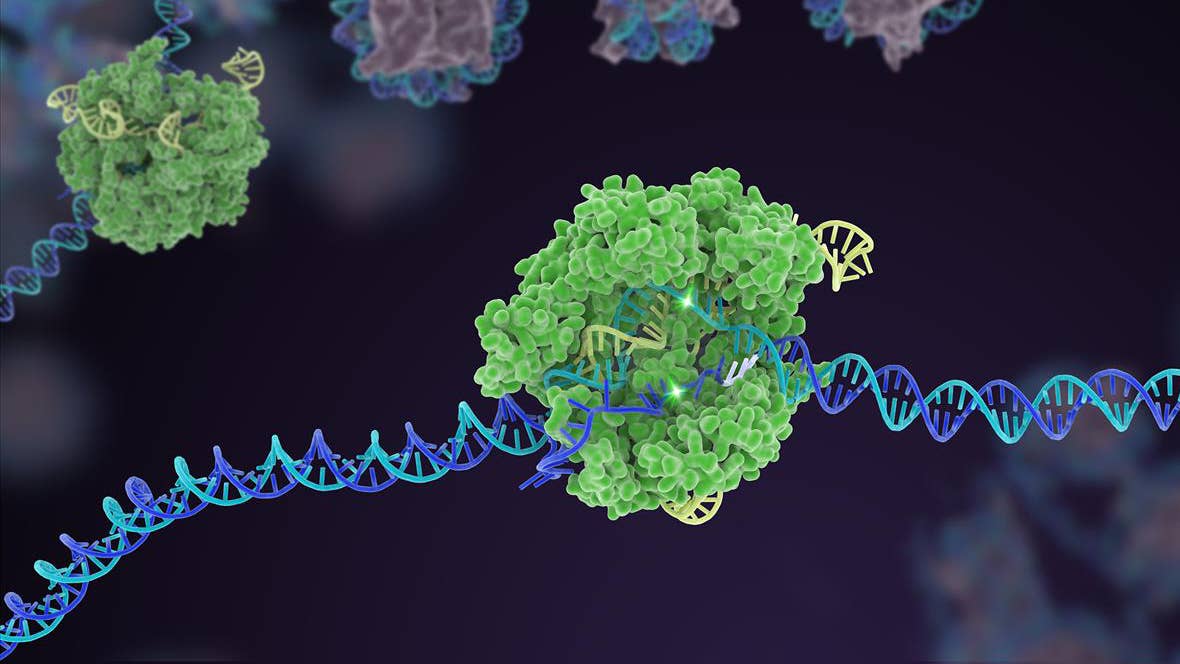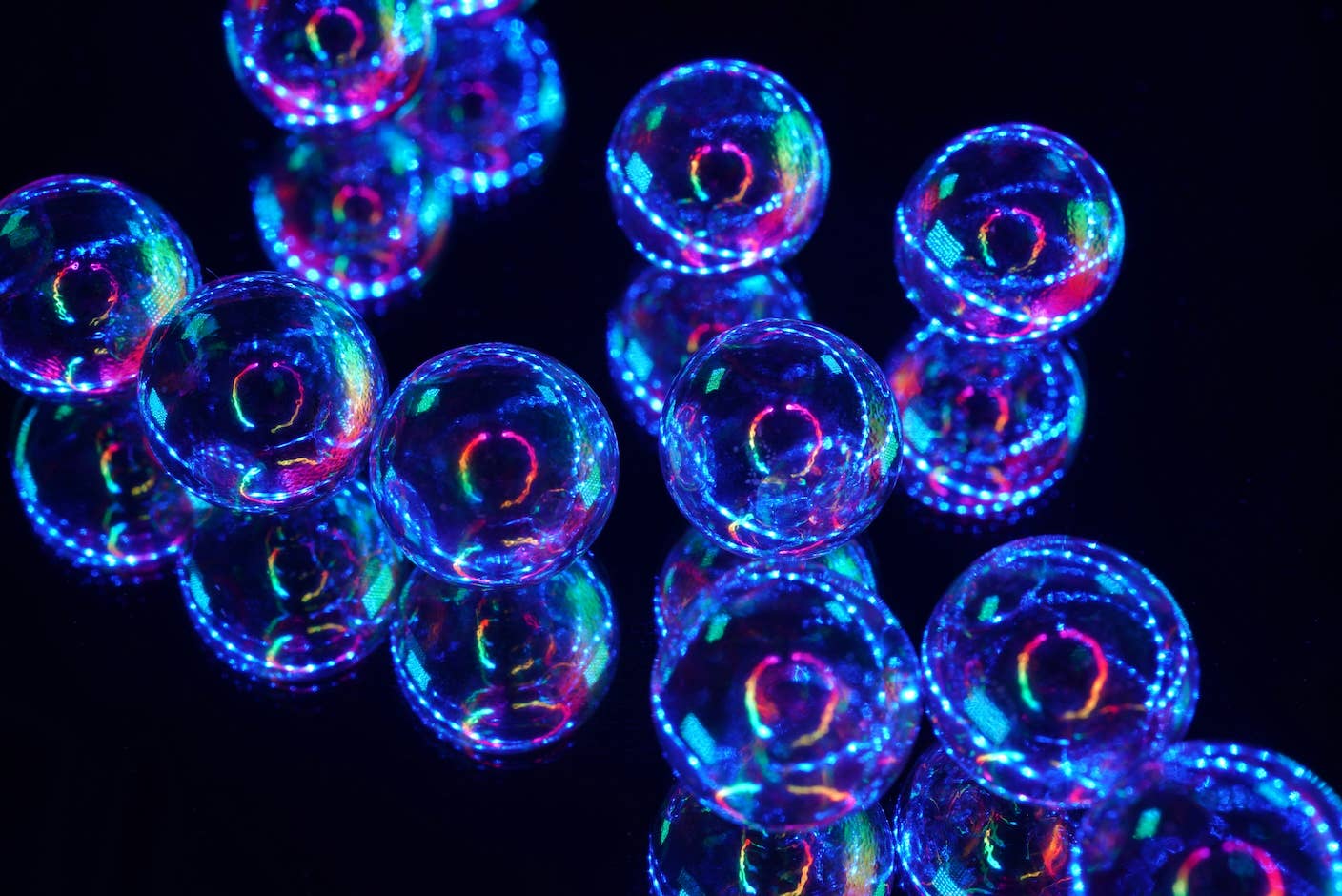Scientists Used AI to Create an Enzyme That Breaks Down Plastic in a Week Instead of a Century

Share
Earth has a plastics problem, and not many great options to solve it. Plastic is everywhere: food, toiletries, and cleaning products come encased in it; our toothbrushes and children’s toys and disposable coffee lids are made of it; and we carry groceries and dispose of trash in bags of it. It’s impossible to avoid. Yet we don’t often think about the fact that these items will still be around hundreds of years from now.
That’s right—your last toothbrush, the one you threw out a couple months ago and never thought of again, will still be slowly decomposing in a landfill in 100 years. Apply that same thought to all the plastic in your home, then all the plastic in the world, and… it’s a lot.
Part of why plastic is so useful is because it’s durable. The flip side is, it’s really hard to get rid of. A team of scientists from the University of Texas at Austin are working on a tool that might be able to help: an enzyme that can break down plastics in just a week—that is, plastics that would otherwise take centuries to fully degrade.
Polyethylene terephthalate, which thankfully is more widely known as PET, is a clear, strong, lightweight plastic; it’s also the chemical name for polyester. PET is most commonly used in food and beverage packaging (it was definitely in the last disposable bottle of water you drank). As such, this type of plastic accounts for 12 percent of all the plastic waste in the world, according to the paper the UT team published last week in Nature.
“One thing we can do is we can break this down into its initial monomers,” Hal Alper, an author on the paper, told Motherboard. “And that's what the enzyme does. And then once you have your original monomer, it’s as if you're making fresh plastic from scratch, with the benefit that you don't need to use additional petroleum resources.”
Backing up a bit, a monomer is a molecule that binds to other molecules to form a repeating chain—a polymer. Depolymerization is the reverse process: breaking a polymer back down into its original molecular components. Those components can then be reused to make… new plastic.
Be Part of the Future
Sign up to receive top stories about groundbreaking technologies and visionary thinkers from SingularityHub.


It sounds a bit counter-intuitive; aren’t we trying to make less plastic? Until we find suitable replacements, unfortunately, making less isn’t much of an option, because people still need to buy detergent and juice and shampoo. But the UT team’s depolymerization method is essentially just a purer form of recycling—and an actual form of recycling, since only a fraction of what you throw in the blue bin with the arrows on it ends up getting recycled.
Enzymes that break down plastic can be found in naturally-occurring bacteria, but they only do their plastic-eating work in highly specific temperature and pH environments. The UT team trained a machine learning algorithm to predict the positions of amino acids in protein structures, and tested different sequences to find one that worked at various temperatures and pHs.
The team dubbed the resulting enzyme FAST-PETase, which stands for “functional, active, stable, and tolerant PETase.” It’s able to break down 51 different varieties of plastic in non-specific temperature and pH conditions, and complete degradation took less than eight days across the board.
The next step is to figure out how to scale the process in an efficient and affordable way.
Similar to the climate crisis—and this is very much a part of the climate crisis—there won’t just be one solution to the world’s plastic problem. Whatever fixes we find, it’s equally important to start weaning ourselves off plastic by replacing it with viable and sustainable alternatives. But given that we already have mountains of the stuff, an enzyme that can break it down quickly sounds like a welcome tool.
Image Credit: tanvi sharma on Unsplash
Vanessa has been writing about science and technology for eight years and was senior editor at SingularityHub. She's interested in biotechnology and genetic engineering, the nitty-gritty of the renewable energy transition, the roles technology and science play in geopolitics and international development, and countless other topics.
Related Articles

Souped-Up CRISPR Gene Editor Replicates and Spreads Like a Virus

This Brain Pattern Could Signal the Moment Consciousness Slips Away

This Week’s Awesome Tech Stories From Around the Web (Through February 14)
What we’re reading